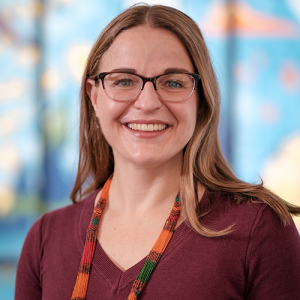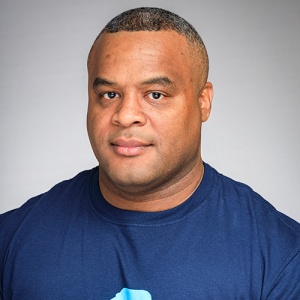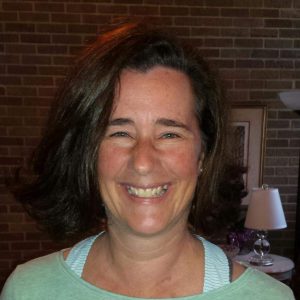What’s the goal of Next Step and how does it work?
Kentral Galloway: Next Step helps survivors of violence and their families heal. Because we know people who are hurt tend to go back into the community and hurt other folks, we are working to heal people, to break that cycle of violence. Next Step is new to Children’s Minnesota, but we’ve been working with other hospitals in Minneapolis since 2016.
The patients and families we work with have been through a traumatic experience they’ll never forget. They wonder how they’re going to move on with their lives. We give them a strong support system to help them start to do that.
Kati Kiely: As a social worker at the Children’s Minnesota Minneapolis campus, I respond to Level 1 and Level 2 trauma patients who come in. While our nurses and doctors care for kids’ medical needs, I make sure patients and their families are connected to any non-medical resources they may need. So if a patient seems like a good fit for Next Step, I’ll first ask the family if they’re interested. If they are, I’ll call a Next Step responder and ask them to come to the hospital. Responders are available 24 hours a day, seven days a week and they’re really fast. The responder typically arrives within 30 minutes and then meets in person with the patient and their family. Patients seem to relate well with the Next Step responders.
Kentral Galloway: When we meet with families, it’s really important that we start by building a relationship; that we meet folks where they are and not pass judgment on them. Often there’s a stigma that gets attached to folks who are survivors of violent crime. Sometimes they’re treated differently. Part of our work is wiping away that stigma, rehumanizing folks as they’re going through the hospital system and making sure they’re being treated equitably. When a survivor of gun violence shows up in our systems, we need to make sure we have empathy and not retraumatize them.



